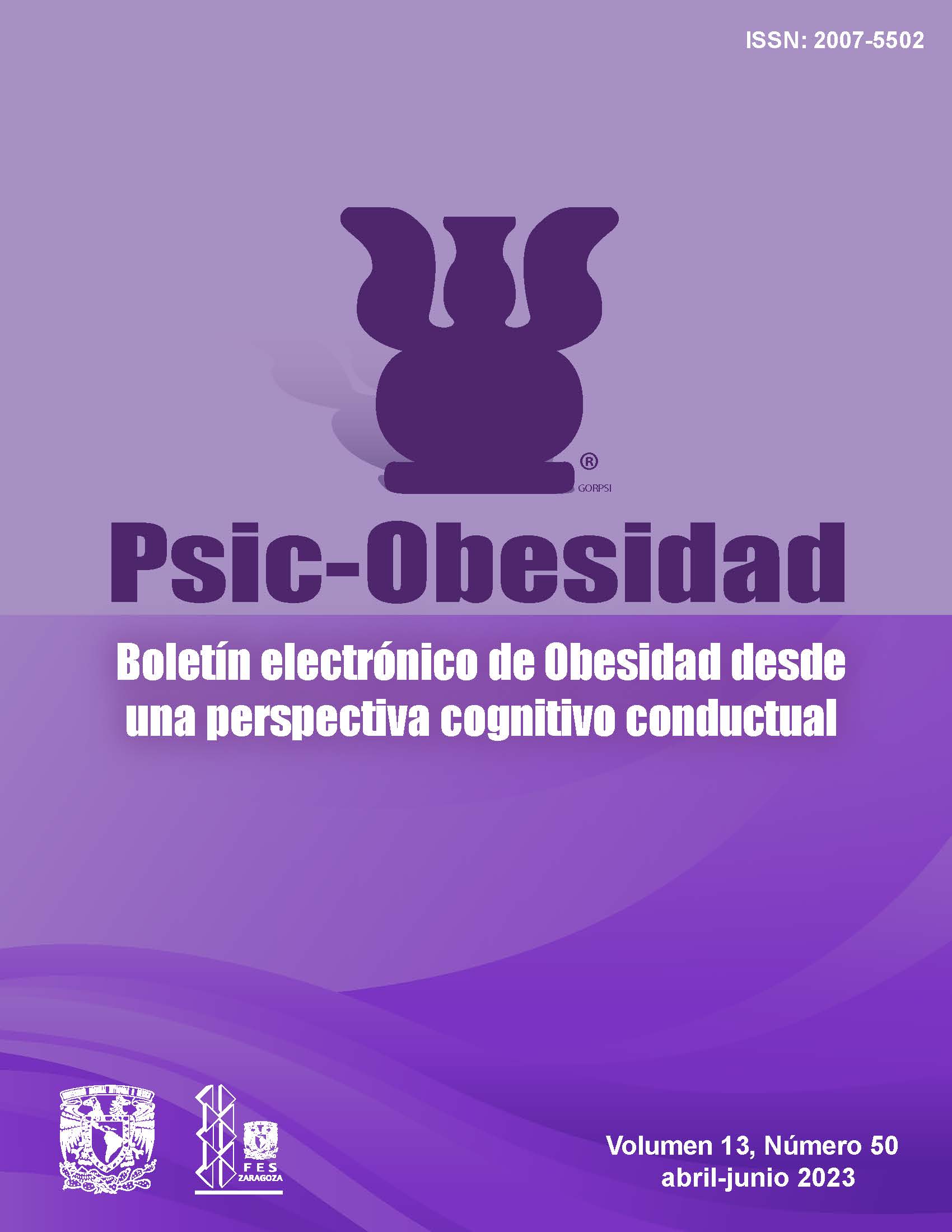Psychological considerations of food consumption (Part 1)
Main Article Content
Abstract
Eating behavior is a behavior that is related to eating habits, the selection of foods that are ingested, the preparations of the food itself and the quantities that are ingested. Eating styles, preferences and rejections towards specific foods correspond to the learning and lived experiences of the individual. There are factors that are related to eating behavior, such as personality and coping style, which can be intermediaries in eating behavior. Two guidelines are considered to identify the psychobiological factors of eating behavior based on the nutritional functions of food in the body and in the cognitive, behavioral, emotional and health processes, so this article describes four psychological components of food consumption: the link between behavior and emotions; cognitions; health and social relations and environment.
Downloads
Article Details
References
Conceptualia (2023). Tiempo https://conceptualia.es/cultura-y-sociedad/conocimiento/tiempo/
Consejo Europeo de Información sobre la Alimentación (EUFIC) (06062006). Los factores determinantes de la elección de alimentos. https://www.eufic.org/es/vida-sana/articulo/los-factores-determinantes-de-la-eleccion-de-alimentos
Cullen, K.W., Baranowski, T., Rittenberry, L., & Olvera, N. (2000). Socialenvironmental influences on children’s diets: results from focus groups with African- Euro- and Mexican-American children and their parents. Health Education Research, 15(5), 581-590. doi: 10.1093/her/15.5.581.
Ellsworth, P.C., & Smith, C.A. (1988). Shades of joy: Patterns of appraisal differentiating pleasant emotions. Cognition and Emotion, 2(4), 301–331. https://doi.org/10.1080/02699938808412702
Gómez-Sánchez, A. (2017). Blog. Clínica de Textos. ¿Alimentario o alimenticio? https://psicologiaymente.com/nutricion/psicologia-de-la-alimentacion
Gordon-Larsen, P. (2014). Food availability/convenience and obesity Review Adv Nutr, 5(6), 809-817. doi: 10.3945/an.114.007070.
Hsu T., & Raposa E.B. (2021). Effects of stress on eating behaviours in adolescents: A daily diary investigation. Psychol. Health. 36, 236–251. doi: 10.1080/08870446.2020.1766041.
Larson, N. & Story, M. (2009). A review of environmental influences on food choices. Ann Behav Med, 38(Suppl 1:S), 56-73. doi: 10.1007/s12160-009-9120-9.
Macht, M. (2008). How emotions affect eating: A five-way model. Appetite, 50(1), 1-11. doi: 10.1016/j.appet.2007.07.002.
Mallikarjuna-Kappattanavar, A., Hecker, P., Moontaha, S., Steckhan, N., & Arnrich, B. (2023). Food Choices after Cognitive Load: An Affective Computing Approach. Sensors (Basel), 23(14), 6597. doi: 10.3390/s23146597.
Organización Mundial de Salud (OMS). (2018). Alimentación sana. https://www.who.int/es/news-room/fact-sheets/detail/healthy-diet
Peña Fernández, Elizabeth, & Reidl Martínez, Lucy María. (2015). Las Emociones y la Conducta Alimentaria. Acta de investigación psicológica, 5(3), 2182-2193. https://doi.org/10.1016/s2007-4719(16)30008-4
Peralta y Fabi, R. (2011). Percepciones del tiempo y el espacio en las ciencias naturales Ciencias, 102, 60-66. http://www.redalyc.org/src/inicio/ArtPdfRed.jsp?iCve=64421308006
Piqueras-Rodríguez, J.A., Ramos-Linares, V., Martínez-González, A.E., & Oblitas Guadalupe, L.A. (2009). Emociones negativas y su impacto en la salud mental y física. Suma Psicológica, 16(2), 85-112. https://dialnet.unirioja.es/servlet/articulo?codigo=3113076&orden=0&info=link
Plutchik, R. (1987). Las emociones. Diana
Portugal-Nunes, C., Cheng, L., Briote, M., Saraiva, C., Nunes, F.M., & Gonçalves, C. (2022). COVID-19 Changes Public Awareness about Food Sustainability and Dietary Patterns: A Google Trends Analysis. Nutrients, 14(22), 4898. doi: 10.3390/nu14224898.
Prospéro-García, O., Méndez-Díaz, M., Alvarado-Capuleño, I., Pérez-Morales, M., López-Juárez, J. & Ruiz-Contreras, A.E. (2013). Inteligencia para la alimentación: alimentación para la inteligencia. Salud mental, 36(2), 109-113. http://www.scielo.org.mx/scielo.php?script=sci_arttext&pid=S0185-33252013000200002&lng=es&tlng=es.
Scherer, K. R. (1993). Studying the emotion-antecedent appraisal process: An expert system approach. Cognition and Emotion, 7(3-4), 325–355. https://doi.org/10.1080/02699939308409192
Téllez-Silva, B.C. (2019). Factores relacionados en la elección y consumo de alimentos. Psic-Obesidad, 9(36,11-13. www.zaragoza.unam.mx/psic-obesidad
Wan, X., Qiu, L., & Wang, Ch. (2022). A virtual reality-based study of color contrast to encourage more sustainable food choices. Appl Psychol Health Well Being, 14(2), 591-605. doi: 10.1111/aphw.12321.
Weiner, B. (1985). An attributional theory of achievement motivation and emotion. Psychological Review, 92(4), 548–573. https://doi.org/10.1037/0033-295X.92.4.548
Yee, A.Z., Lwin, M.O., & Ho, S.S. (2017). The influence of parental practices on child promotive and preventive food consumption behaviors: a systematic review and meta-analysis. Int J Behav Nutr Phys Act, 14(1), 47. doi: 10.1186/s12966-017-0501-3.
Zimmerman F.J., & Shimoga S.V. (2014). The effects of food advertising and cognitive load on food choices. BMC Public Health. 14, 342. doi: 10.1186/1471-2458-14-342.
